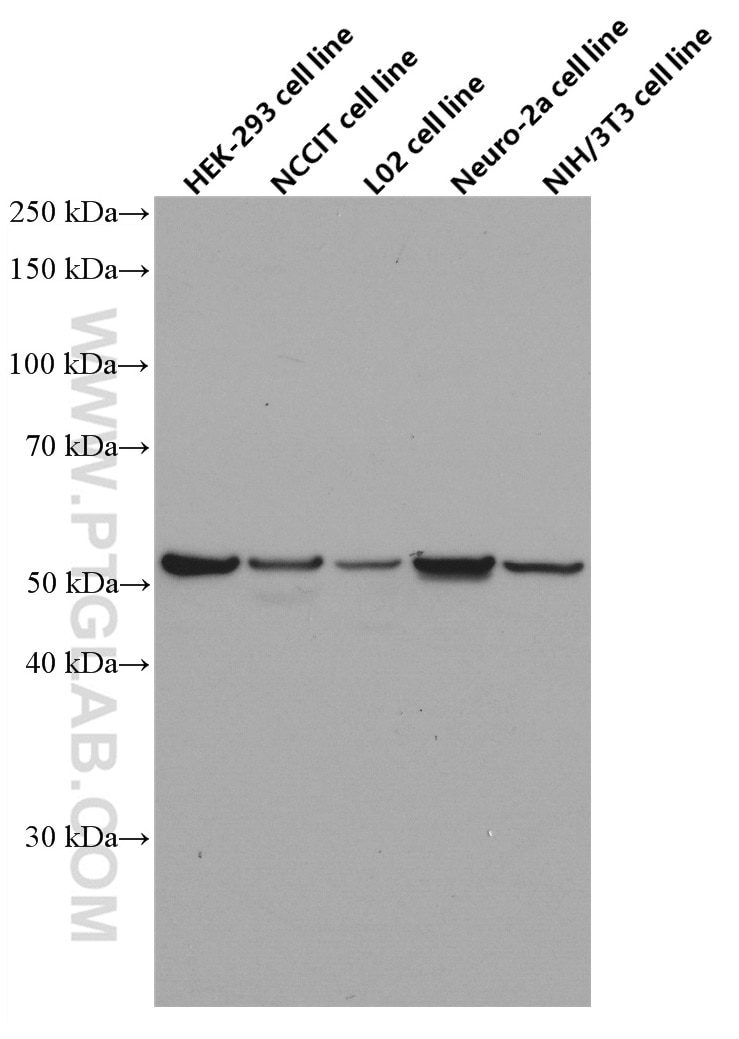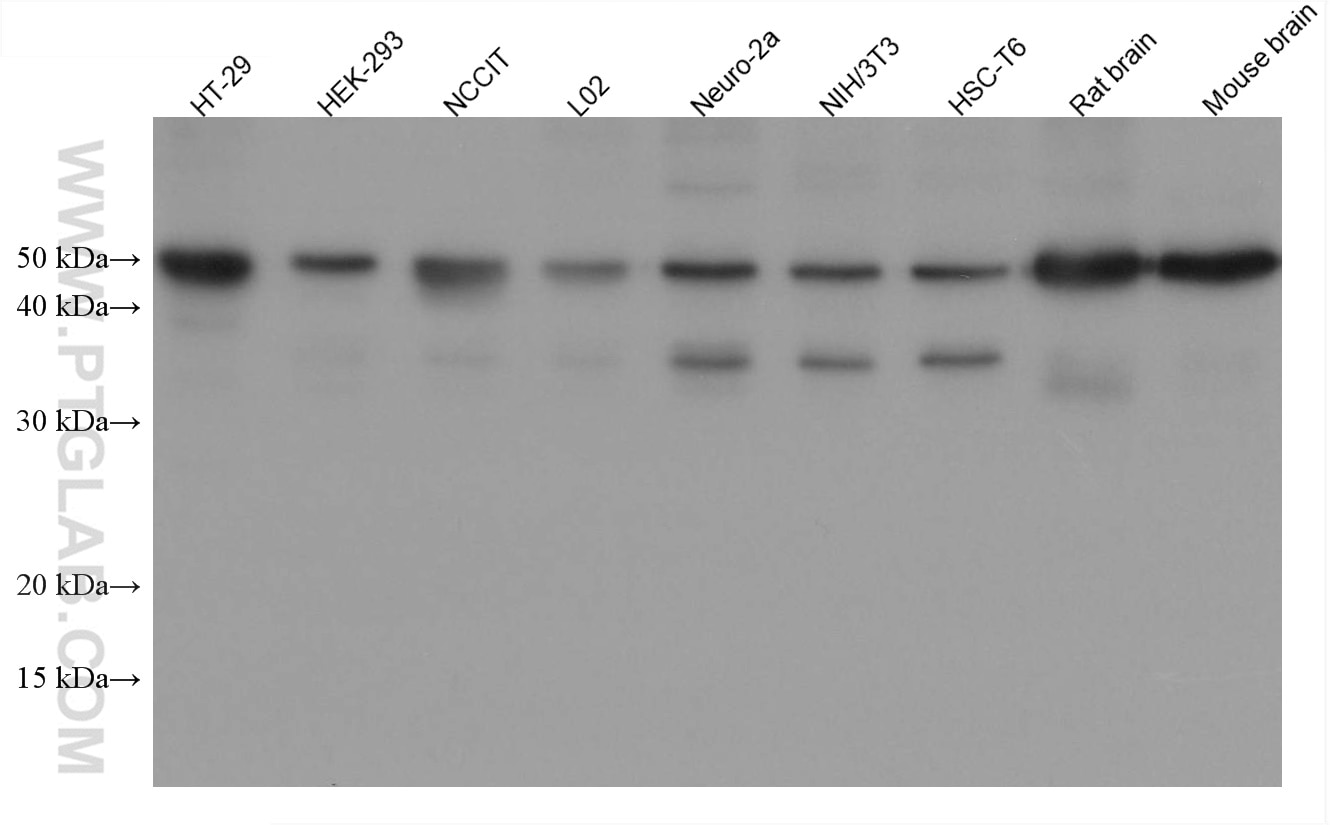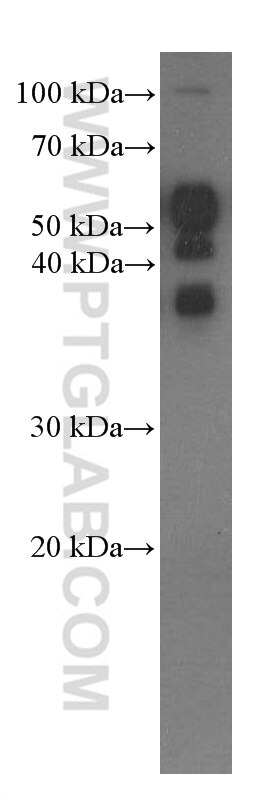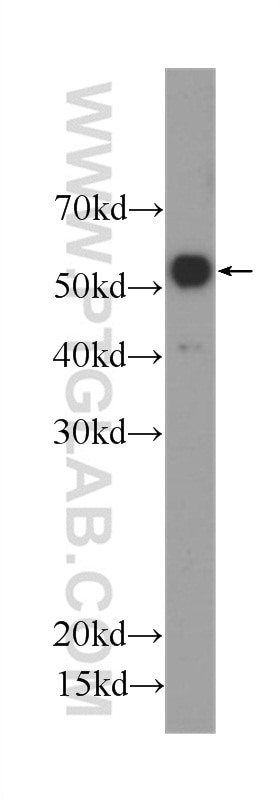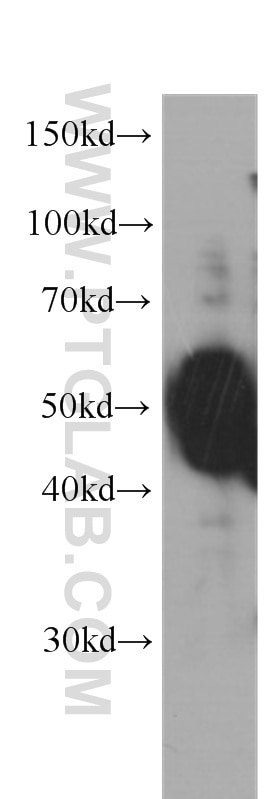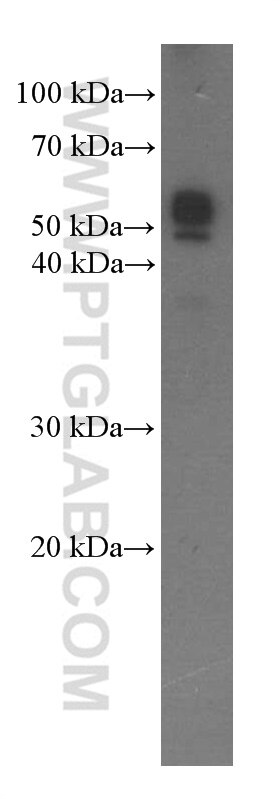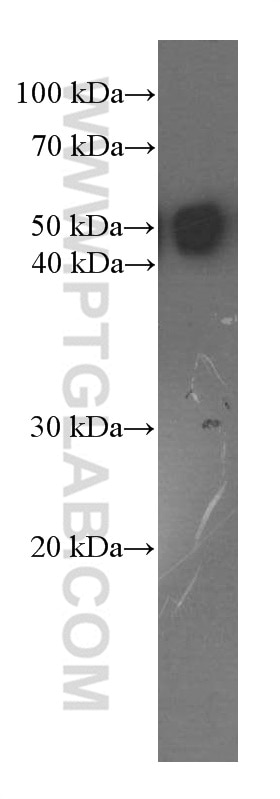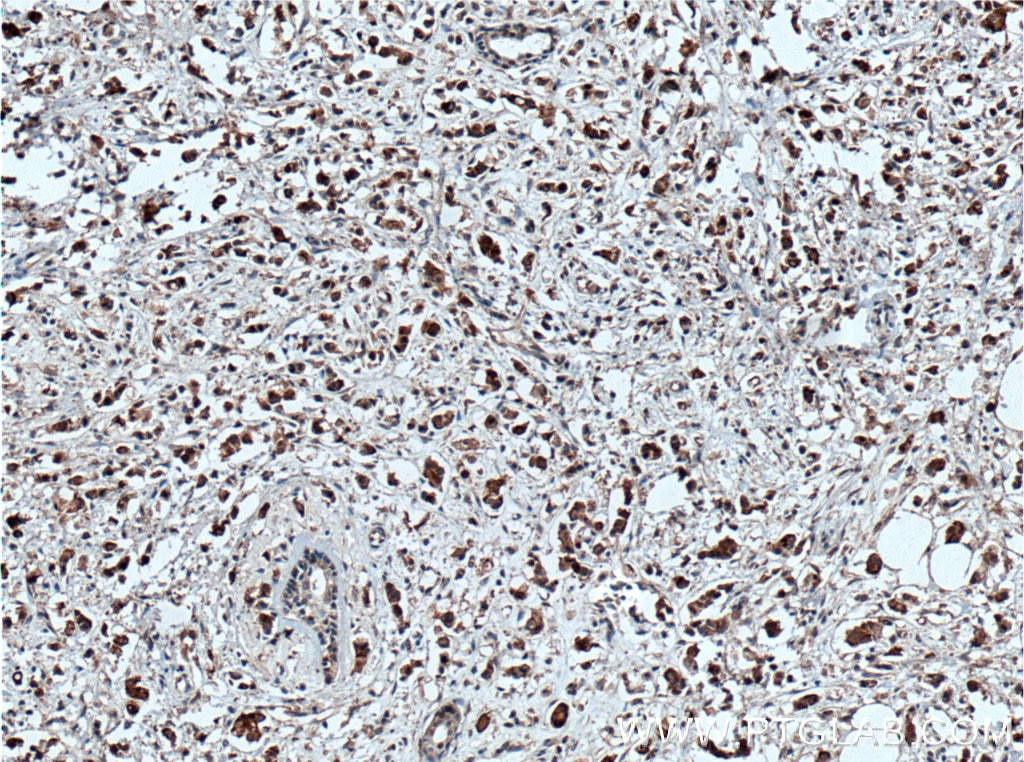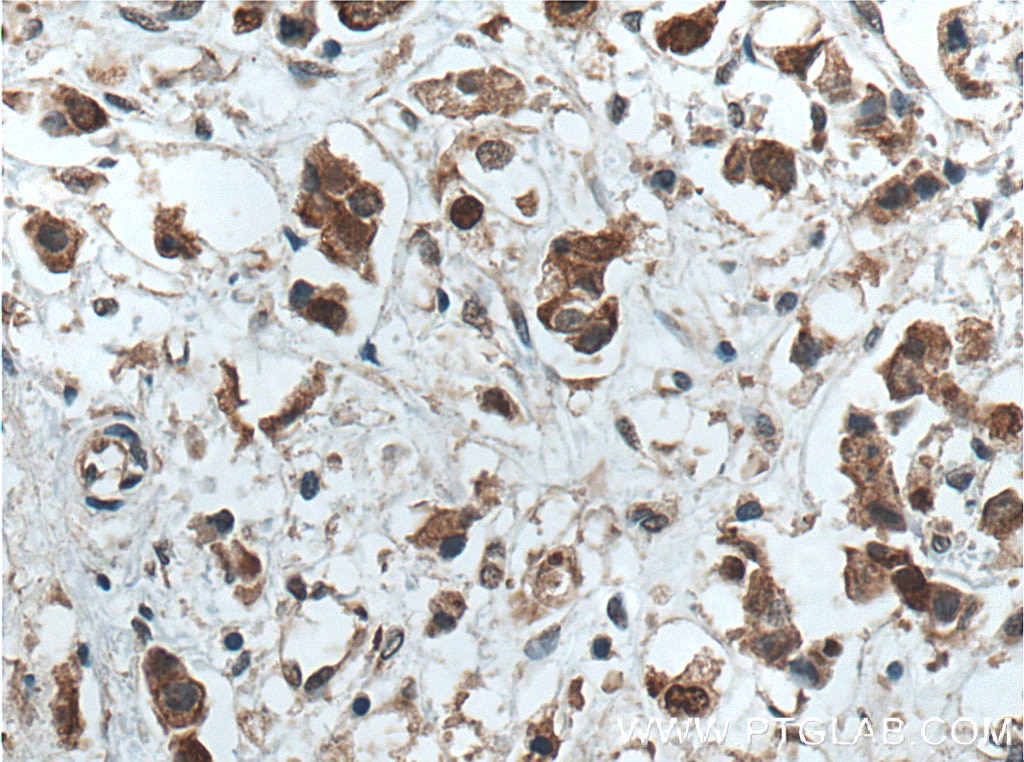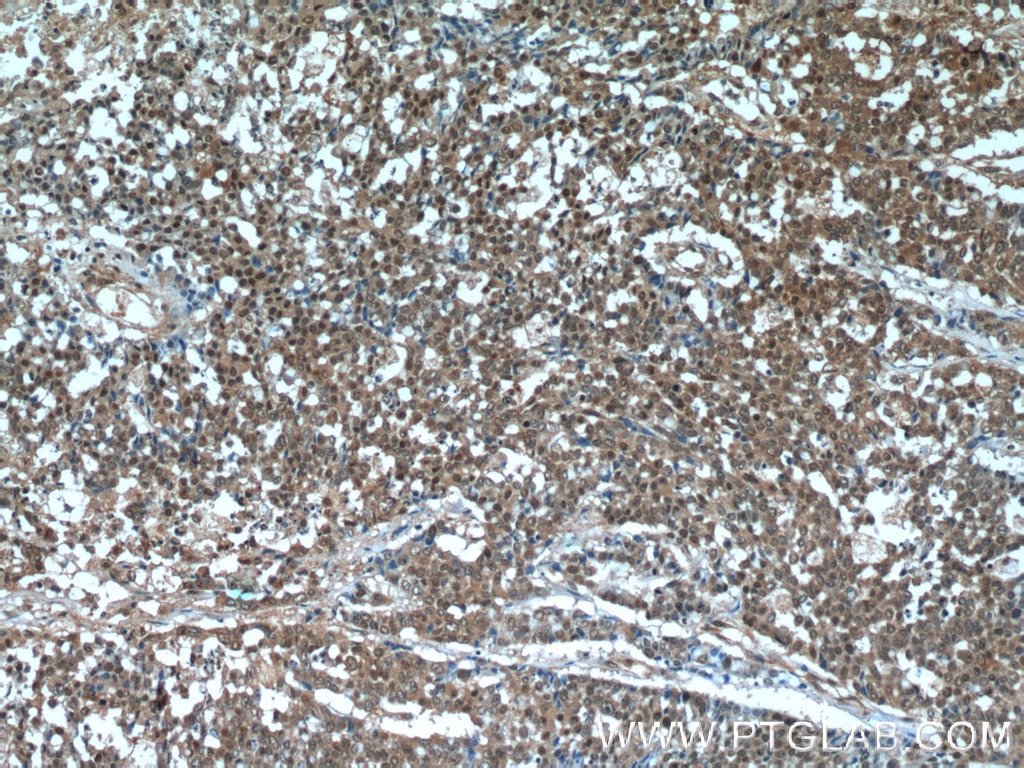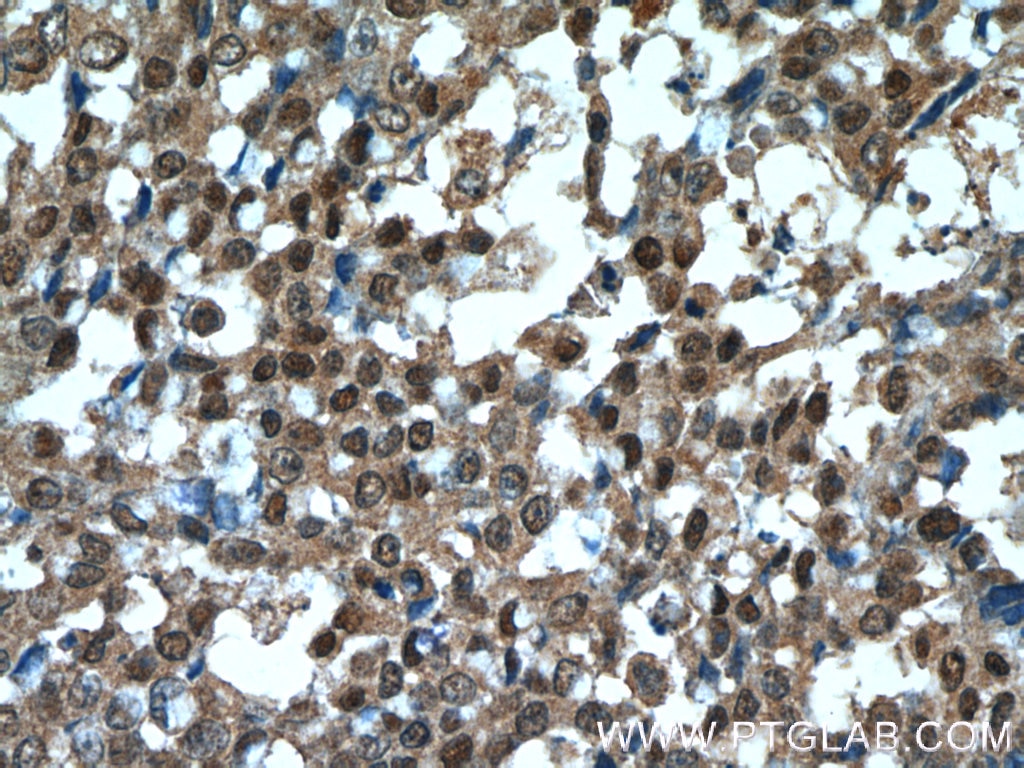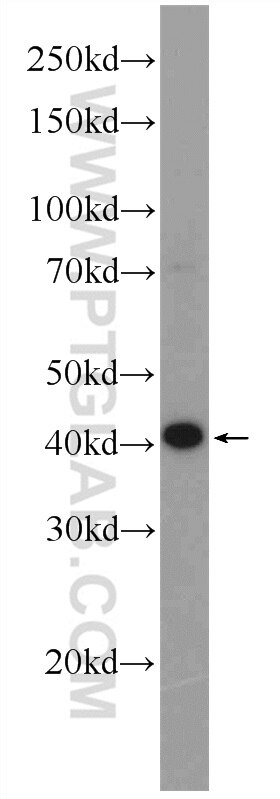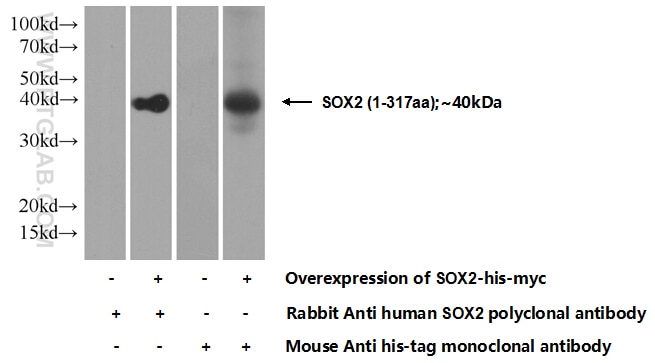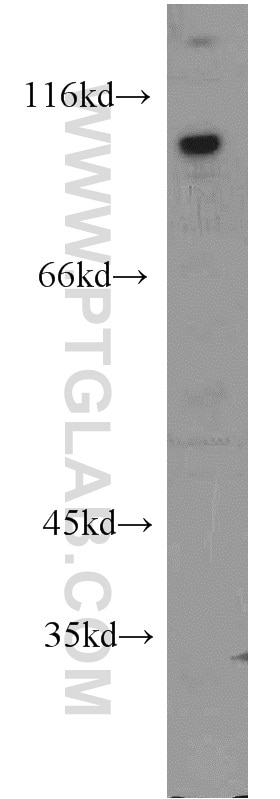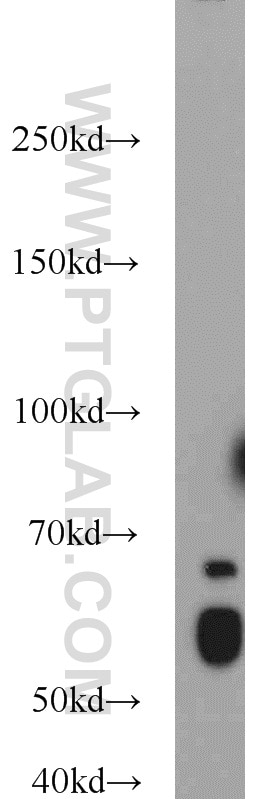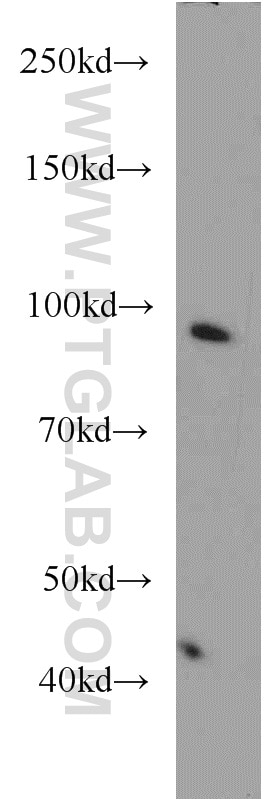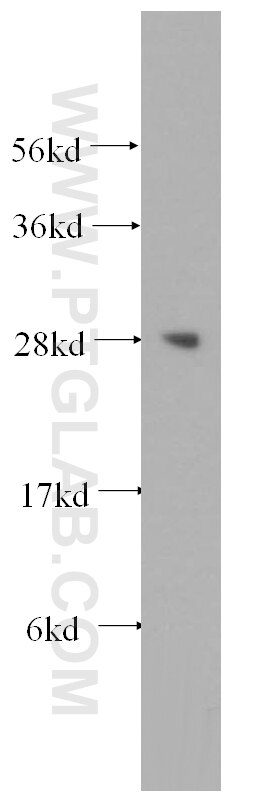OCT4 Monoclonal antibody
OCT4 Monoclonal Antibody for IHC, WB, ELISA
Host / Isotype
Mouse / IgG1
Reactivity
human, mouse, rat
Applications
WB, IHC, IF, ELISA
Conjugate
Unconjugated
CloneNo.
1C4B6
Cat no : 60242-1-Ig
Synonyms
Validation Data Gallery
Tested Applications
| Positive WB detected in | HEK-293 cells, human brain tissue, NCCIT cells, Neuro-2a cells, L02 cells, NIH/3T3 cells |
| Positive IHC detected in | human breast cancer tissue, human colon cancer tissue Note: suggested antigen retrieval with TE buffer pH 9.0; (*) Alternatively, antigen retrieval may be performed with citrate buffer pH 6.0 |
Recommended dilution
| Application | Dilution |
|---|---|
| Western Blot (WB) | WB : 1:5000-1:20000 |
| Immunohistochemistry (IHC) | IHC : 1:250-1:1000 |
| It is recommended that this reagent should be titrated in each testing system to obtain optimal results. | |
| Sample-dependent, Check data in validation data gallery. | |
Published Applications
| WB | See 27 publications below |
| IHC | See 2 publications below |
| IF | See 5 publications below |
Product Information
60242-1-Ig targets OCT4 in WB, IHC, IF, ELISA applications and shows reactivity with human, mouse, rat samples.
| Tested Reactivity | human, mouse, rat |
| Cited Reactivity | human, mouse, rat |
| Host / Isotype | Mouse / IgG1 |
| Class | Monoclonal |
| Type | Antibody |
| Immunogen | OCT4 fusion protein Ag1794 |
| Full Name | POU class 5 homeobox 1 |
| Calculated Molecular Weight | 39 kDa |
| Observed Molecular Weight | 50-52 kDa |
| GenBank Accession Number | BC020712 |
| Gene Symbol | POU5F1 |
| Gene ID (NCBI) | 5460 |
| RRID | AB_2881364 |
| Conjugate | Unconjugated |
| Form | Liquid |
| Purification Method | Protein A purification |
| Storage Buffer | PBS with 0.02% sodium azide and 50% glycerol pH 7.3. |
| Storage Conditions | Store at -20°C. Stable for one year after shipment. Aliquoting is unnecessary for -20oC storage. 20ul sizes contain 0.1% BSA. |
Background Information
Background
Octamer-binding protein 4 (OCT4), also known as POU5F1 or OCT3/4, is a member of the POU gene family and encoded by the human gene POU5F1 (POU domain class 5 transcription factor 1). OCT4 is a member of the Octamer class of transcription factors that recognize the 8-base pair consensus motif 5'-ATGCAAAT-3'. Expression of OCT4 is associated with an undifferentiated, pluripotent stem cell phenotype and tumors. OCT4 is also expressed in the developing brain, with the highest levels found in the cortex, olfactory bulb, and the hippocampus.
What is the molecular weight of OCT4?
The molecular weight of OCT4 is 38 kDa.
What are the isoforms of OCT4?
The human POU51F gene consists of five exons located on chromosome 6 and can generate three mRNA isoforms through alternative splicing - OCT4A, OCT4B, and OCT4B1 (PMID: 18787205). OCT4A and OCT4B1 orchestrate gene transcription in the nucleus supporting self-renewal and pluripotency maintenance in ESCs and embryonal carcinoma cells, whereas OCT4B is localized in the cytoplasm in various non-pluripotent cell types and cannot sustain self-renewal and pluripotency.
What is OCT4's involvement in pluripotency and self-renewal?
OCT4 forms a trimeric complex with SOX2 and DNA to control the expression of genes involved with embryonic development, such as FGF4 (PMID: 10801796), UTF1 (PMID: 10409735), or even NANOG (PMID: 15743839). OCT4 is critical for early embryogenesis (PMID: 9814708) and for embryonic stem cell pluripotency (PMID: 16153702). High levels of OCT4 are associated with the ability to self-renew, which is emphasized by OCT4 gene knockdowns promoting differentiation (PMID: 10742100). OCT4 is also one of the four key transcription factors used to generate induced pluripotent stem cells (iPSCs) by reprogramming fibroblasts to a pluripotent state (PMID: 16904174).
Protocols
| Product Specific Protocols | |
|---|---|
| WB protocol for OCT4 antibody 60242-1-Ig | Download protocol |
| IHC protocol for OCT4 antibody 60242-1-Ig | Download protocol |
| Standard Protocols | |
|---|---|
| Click here to view our Standard Protocols |
Publications
| Species | Application | Title |
|---|---|---|
J Hematol Oncol A novel lncRNA ROPM-mediated lipid metabolism governs breast cancer stem cell properties. | ||
Theranostics Sulforaphane Inhibits the Acquisition of Tobacco Smoke-Induced Lung Cancer Stem Cell-Like Properties via the IL-6/ΔNp63α/Notch Axis. | ||
Cancer Commun (Lond) KDELR2 promotes breast cancer proliferation via HDAC3-mediated cell cycle progression. | ||
Front Oncol PIWIL1 Drives Chemoresistance in Multiple Myeloma by Modulating Mitophagy and the Myeloma Stem Cell Population. | ||
Stem Cell Res Generation of a human induced pluripotent stem cell line (INNDSUi003-A) derived from patient with Becker muscular dystrophy (BMD). |
